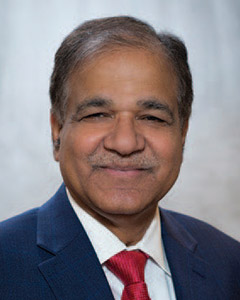Make a plan for your heart health with Monmouth Medical Center Southern Campus.
 In movies and TV Shows, heart attacks are obvious and dramatic. In real life, they don’t always work that way.
In movies and TV Shows, heart attacks are obvious and dramatic. In real life, they don’t always work that way.
One underlying problem is often coronary artery disease (CAD), the most prevalent form of heart disease. With CAD, blockages in arteries of the heart obstruct blood flow. Too little blood supply to the heart muscle can cause symptoms like chest discomfort, shortness of breath or, in extreme cases, heart attacks or sudden death. “CAD can also result in irregular heartbeats of all sorts, called heart arrhythmias, which may result in palpitations or passing out,” says Avinash Gupta, Chief of Cardiology and Medical Director of Cardiac Rehabilitation at Monmouth Medical Center Southern Campus (MMCSC).
A technology available at MMCSC helps clear up uncertainties that can surround heart attacks and related forms of heart trouble. Called Fractional Flow Reserve Computed Tomography (FFR-CT), it evaluates how well blood flows through the arteries of a patient’s heart and determines whether blockages exist, where they are, and what impact they have. MMCSC is one of the few hospitals in New Jersey to offer this innovative technology. FFR-CT uses artificial intelligence software to create a three-dimensional model of a patient’s cardiac arteries, all noninvasively, enabling physicians to determine with greater confidence and accuracy whether a patient has a significant blockage in the heart’s arteries.
A variety of other tests may help to determine what’s going on when doctors suspect heart trouble. Noninvasive ways of detecting inadequate blood flow include:
- An electrocardiogram (ECG), which measures electrical activity in the heart as it beats.
- An echocardiogram (echo), which uses ultrasound to produce moving images of the heart’s interior.
- A stress test, which evaluates heart function while you increase your heartbeat by exercising or taking a drug using measurements taken by ECG and imaging, called a nuclear stress test.
- A Coronary Calcium Scoring, is a simple, fast and safe CT imaging exam that detects calcium in the coronary arteries, allowing the detection of early plaque formation all the way to heavy plaque burden. This test, along with other risk assessment tools allows clinicians to launch preventive strategies.
Each test has advantages and limitations. “Depending on the patient, one test may be preferred over another,” Dr. Gupta says.
Prior to FFR-CT technology, the only way physicians could see for certain, if specific coronary arteries were blocked was to do a procedure known as cardiac catheterization and angiogram.
“Catheterization with angiogram is gold standard for diagnosis of coronary artery disease,” Dr. Gupta says. “Unfortunately, catheterization is invasive, unlike to the FFR-CT.”
“After receiving a stent or bypass from a possible heart attack, should not be the end of treatment,” explains Dr. Gupta. “MMCSC offers an excellent Cardiac Rehab program to patients to treat arthrosclerosis-the underlying disease-to prevent a second heart attack.”
So before a ‘real-life’ cardiac event happens in your life, know that MMCSC’s cardiology team of specialists and state-of-the-art technology is available for all you preventive and emergent needs.
To connect with one of New Jersey’s top cardiovascular specialist at Monmouth Medical Center Southern Campus, call 888-724-7123 or visit our heart and vascular care site for more information.